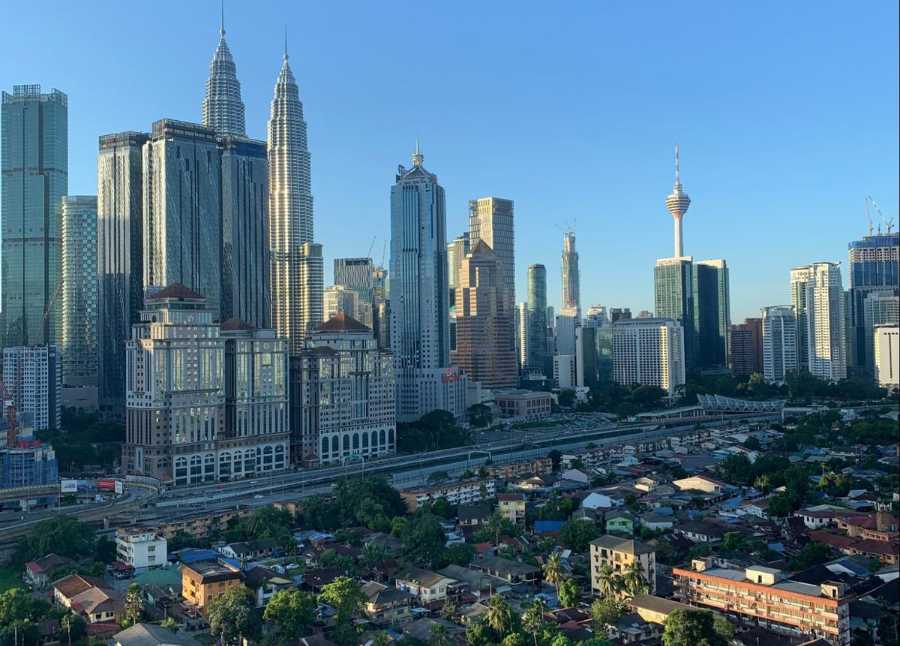
AS Malaysia intensifies its efforts toward a greener future, the Malaysian Green Technology and Climate Change Corporation (MGTC) remains at the forefront of the nation’s green transformation, striking a balance between economic growth and sustainability.
Over the past 25 years, MGTC, an agency under the Natural Resources and Environmental Sustainability Ministry, has played a pivotal role in advancing sustainable development and fostering green growth.
According to MGTC group chief executive officer, Ir. Ts. Shamsul Bahar Mohd Nor, the agency was initially established as Pusat Tenaga Malaysia in 1998 to address the need for a national energy research centre.
“Fast-forward, our roles have expanded, but we remain committed to advocating a green economy through various strategic initiatives that promote sustainability and reduce carbon footprint,” he said.

BALANCING GROWTH & SUSTAINABILITY
MGTC’s cornerstone programme is the Green Technology Financing Scheme, launched over a decade ago. This scheme has mobilised RM6.264 billion in green investments, supported 458 projects, and created over 5,500 green jobs.
Complementary initiatives, such as the Green Investment Tax Allowance and Green Income Tax Exemption, have attracted RM9 billion in investments since 2016, benefitting over 1,000 projects in renewable energy, energy efficiency, electric vehicles and green buildings.
MGTC also introduced the Low Carbon Operating System (LCOS) to support industries in systematically monitoring and reducing carbon emissions, driving efficient operations and aligning with global standards.
The agency’s community programmes, including the Rumah Ibadat Hijau initiative, have reduced 286 tonnes of carbon emissions, equivalent to planting 7,150 trees by promoting green practices in houses of worship.
Green procurement initiatives like Government Green Procurement stimulate demand for eco-friendly products, supported by the MyHIJAU certification, which aims to reach 50,000 certified products by 2030.
At the local level, MGTC has collaborated with authorities to create 63 low-carbon zones and 149 low-carbon partners, with the goal of establishing 200 Low-Carbon zones and 1,000 Low-Carbon partners by 2030.
Overall, Shamsul noted four key components that MGTC is focusing on: consumer spending, government spending, investment and trade.
“We want green products and services to be the leading choice for consumers. The government is [also] leading by example, and we want to roll this out to all agencies, state governments and local authorities.
“[In terms of investment], Malaysia has land, a stable grid and a talent pool ready to support green industries, especially in the energy, mobility, manufacturing, and circular economy sectors. The fourth and final component is trade, whereby we want to increase green exports,” he said.
A GREEN ECONOMY SHOWCASE
Shamsul said the International Green Technology and Eco Products Exhibition and Conferences (IGEM) is one of the best platforms for showcasing green technologies and solutions.
This year’s IGEM was held from Oct 9 to 11 at the KL Convention Centre and brought together investors, buyers and visitors from various countries to see Malaysia’s green technologies.
The conference hosted 15 sessions and roundtable discussions involving government ministries, the private sector, and other stakeholders, fostering engagement and promoting more holistic approaches.
“Through various collaborations, including state governments and local and international companies, IGEM has generated business leads worth RM53.1 billion in the last 14 years. It has also expanded its wings to promote home-grown products globally – India, Singapore and China, just to name a few,” Shamsul added, highlighting the impact of IGEM, now in its 15th iteration.
ADOPTING A GREEN LIFESTYLE
The ultimate goal is to make green living a part of everyday life for all Malaysians.
Adopting a green lifestyle is a shared journey, with MGTC and the private sector joining forces to make sustainable living accessible.
Key areas of focus include promoting eco-friendly products and waste reduction, encouraging energy-efficient choices like five-star rated appliances, and advocating for water conservation through efficient appliances and mindful habits.
Sustainable transportation — such as using public transit, cycling or walking — can reduce emissions, along with a push for food products that are locally produced.
Biodiversity efforts also play a role in supporting natural habitats. Together, these daily practices foster a culture of environmental responsibility, benefiting future generations and creating a healthier environment for all.
Sumber: NST

